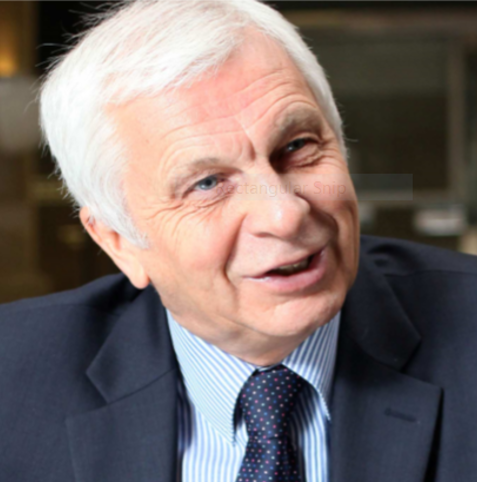Professor Mick Waters - Blended Learning: what’s in the mix?
 Digital technology, a resource that has held promise since computers entered classrooms in the 1980s, suddenly took a big step forward as schools (along with the rest of society) tried to come to terms with circumstances of lockdown.
Digital technology, a resource that has held promise since computers entered classrooms in the 1980s, suddenly took a big step forward as schools (along with the rest of society) tried to come to terms with circumstances of lockdown.
Many schools in many countries used technology to support the learning of their pupils using websites to host learning activity or run live online lessons. As schooling anticipates the uncertainty of a near future with possible local lockdowns, quarantined bubbles and faltering attendance patterns, the consideration of digital possibility is gaining pace. Interestingly, the balance between school based and home based, remote learning is now commonly being referred to as ‘blended learning’.
Of course, ‘blended learning’ is a bit more complex than that.
In ‘Successful Futures’, Graham Donaldson listed twelve pedagogical principles which would underpin the success of the new Curriculum for Wales. In the eight pages on those twelve principles, the word ‘blend’ appears just three times and the words ‘computer’, ‘technology’, ‘digital’ or ‘virtual’ not once. Maybe the concept of ‘blended learning’ deserves further examination especially as the conversation on pedagogy is building in earnest as the Curriculum for Wales becomes a reality.
What Graham wrote about was the way our pedagogy needs to bring together, or blend, a range of different teaching approaches, practised well. He was emphasising that those polarised arguments about progressive and traditional techniques or didactic and discovery methods are futile and what we need are teachers with a wide repertoire of pedagogy employing the right approach at the right time with the right learners for the right purpose. That is why the use of technology to link home and school learning is part of a blended approach but not the whole of it.
Of course a ‘blend’ is just a mix. The current blended learning situation is similar to developments in the world of fashion when Viyella was created in the 1890s. The lightness of cotton was paired with the sturdiness of wool to make fashionable and warm clothing; a sort of ‘best of both worlds’. Another notion of blending is used in tea and coffee production, where the aim is to ensure a consistency of flavour for the consumer. The challenge for schools is to blend the various subject disciplines, through Areas of Learning Experience, into a consistent school experience for youngsters that set them well for the future while enjoying their present.
In cooking, as the milk is added to the roux, the use of a whisk to get the air into the blended sauce ensures smoothness and no lumps. In the 1920s food blenders were invented, helping us to make some foods easier to swallow. Should we be blending our curriculum content by whisking it to such a degree that it is liquidised into a puree, a ‘learning smoothie’, or do we need to ensure that there is something to chew on? We know we need fibre; granary bread is better for us than white where the grain has been processed and blended. We need to offer learning that provides ‘something to get the teeth into’ while making sure it is appetising and appealingly smooth. How do we develop a learning experience that builds knowledge and understanding and at the same time develops skills as well as positive attitudes and relationships?
The current interest in blended learning could help us to think about other aspects of the learning blend. Can we take further and more profitably the efforts we are making to engage children at home? Could we take this opportunity to look properly at homework? Though some schools have changed its name, homework remains one of those bits of schooling that we seem to know are not right. Could we make it worthwhile by doing something to create a consistent blend with school-based learning?
It will probably never be researched but there are lots of examples of youngsters who used the web during lockdown to explore the home learning offers of schools other than their own. Similarly, there are many examples of children ‘having a go’ at learning aimed at children in much older or younger year groups than their own. Is it time to address the issue of the way learning is aimed at children born between two Augusts as the best way to organise and instead better blend our learning offer to fit differing maturities in children?
In terms of technology as a vehicle for learning, how do we blend the use of virtual experience with the opportunity for youngsters to engage with others in authentic settings such as employment, universities, schools elsewhere and children in different countries?
The different developments in ‘Our National Mission’ around the curriculum are coming together. The curriculum itself is being supported by all those developments that have been in train for four years: ITE, professional standards, ALN, inspection, the National Academy for Educational Leadership, professional learning and more are the ingredients that have been addressed to blend with the intention and ambition of the new Curriculum for Wales. It’s a heady mix!
As the agenda moves firmly into a focus upon pedagogy for the new curriculum, it is vital that the expertise of all concerned blends together to make the curriculum come alive. Indeed the most important blend in Welsh learning just now is probably the productive mix of teachers and school leaders with the alphabet soup (another blend) of agencies : ITE, HEI, NAEL, ESTYN, WG, NAPL, LA, RSIO, WJEC, EWC and all the others. All these agencies working together, with and alongside schools to blend their own insight and learning will secure the prize we seek for our young: Successful Futures.
Professor Mick Waters
Mick Waters works with the schools in the West Midlands in raising standards. He has also worked at national policy level with the Welsh Government offering advice and support to the education reform agenda and has been instrumental in the development of the professional standards for teaching and leadership and assisting teaching.



